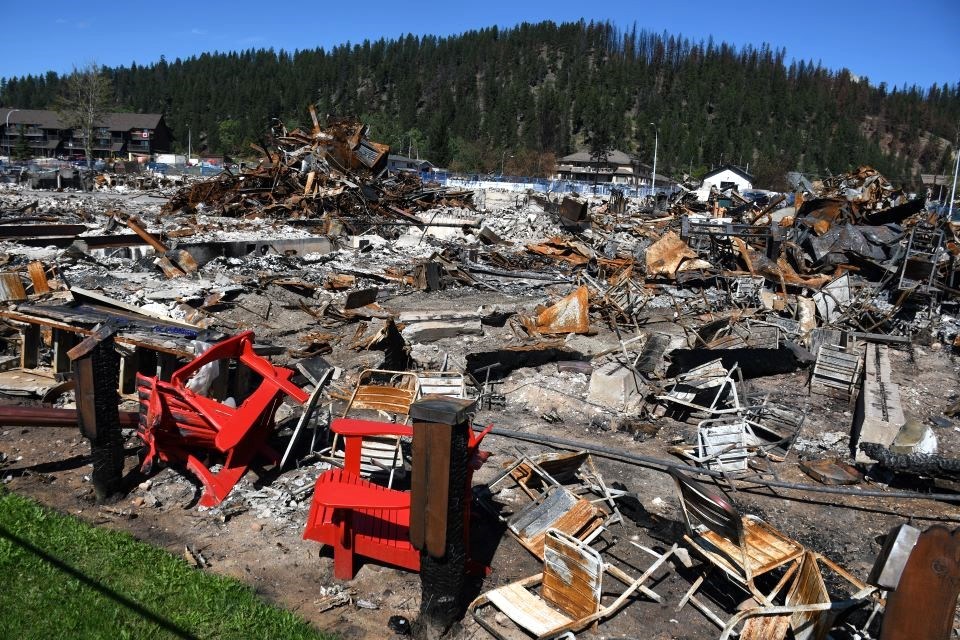Jasper municipal council has now approved a total of 12 positions to support the town’s recovery following the disastrous summer wildfire.
Four of these positions were approved during a regular meeting on Tuesday (Sept. 24) and include two recovery outreach workers on a two-year term to assist Community Outreach Services (COS).
“Since reopening after the fire on Sept. 9, outreach has seen a massive increase in the number of new clients as well as the number of existing clients reaching out for support,” said Christopher Read, the municipality's director of community development.
In a typical month pre-wildfire, outreach would get roughly 125 clients, eight of whom would be new clients. This breaks down to 30 clients per week with two new clients. Between Sept. 9 and 15, however, outreach had 224 clients, 88 of whom were new.
“This level of casework does not allow the existing COS team to successfully meet the increased needs of residents due to the wildfire, nor does it allow COS to meet the program contract outcomes of the many funders that we do have for our existing outreach team,” Read said.
While acknowledging the spike in intakes will level to some extent, Read explained outreach workers were noticing a range of complex social challenges. These include – but are not limited to – substance abuse, domestic violence, homelessness and financial instability.
“That will likely increase in intensity and complexity in the immediate months to come before folks can find a degree of stability with housing,” he said. “Not all new clients will become regular or ongoing clients, [but] we estimate that a good 20 per cent of those clients will become ongoing clients of COS.”
Coun. Scott Wilson asked why these needed to be two-year positions, rather than just one-year terms that could be extended if needed. He also asked if the original eight positions would help alleviate the workload.
Read replied while one of the original eight positions had been for a social recovery co-ordinator, it would be focused on community events and response rather than outreach. He added the recommendation for two-year terms was based on research of other disasters.
“We believe two years may extend to three rather than one year that may extend to a year-and-a-half,” he said. “And then the second part is we do want to attract high-quality staff to be able to meet the needs of this very challenging aspect of our recovery, and so a two-year term will help us to attract that quality kind of person.”
Wilson also mentioned a lack of housing may be exacerbating the need for these services.
Read agreed housing played a large role but noted it would not solve issues such as isolation, substance abuse, mental health or family violence.
“House is very important; it is also only one part of the needs that people have in these complex social challenges we’re seeing in our office,” he said. “I don’t think we are overstaffing this by any stretch, but I do think we are appropriately or right-sizing this request.”
Coun. Kathleen Waxer spoke in favour of the two-year term because while interim housing might be solved in a year, there may be people still having difficulty in their day-to-day lives.
Council also approved a second project recovery manager for a one-year term.
“There are a number of complex projects within each of those files that need to be actioned simultaneously, and we are finding that there is a need for additional project management capacity and support in order to be able to move forward with those effectively,” said Michael Fark, the municipality's directory of recovery.
Fark added they were requesting only a one-year term because they believed a single project manager will be able to manage the balance of work after the first year.
For the fourth position, council amended the motion for the original eight positions to include a small business recovery co-ordinator. CAO Bill Given said the original motion had failed to capture council’s intent.
The four positions are expected to cost an extra $650,000. This is on top of the $900,000 for the eight original positions approved earlier this month.
The Alberta government will be covering 90 per cent of the cost through the Disaster Recovery Program, and the municipality will be required to cover the remaining 10 per cent, roughly $155,000.
The Municipality of Jasper is estimated to have lost about $283 million in assessment value due to the wildfire, equating to a $2.2 million drop in tax revenue. To help mitigate this loss, council has asked the province for financial support.
Coun. Rico Damota said while most residents understood the need for these recovery positions, there was “a general and justifiable concern” about the extra burden on the remaining tax base.
“I know that we’re going to be seeking other areas to try to make up that 10 per cent, but the reality is, right now, it’s not there, and people are very concerned about that,” Damota added.



